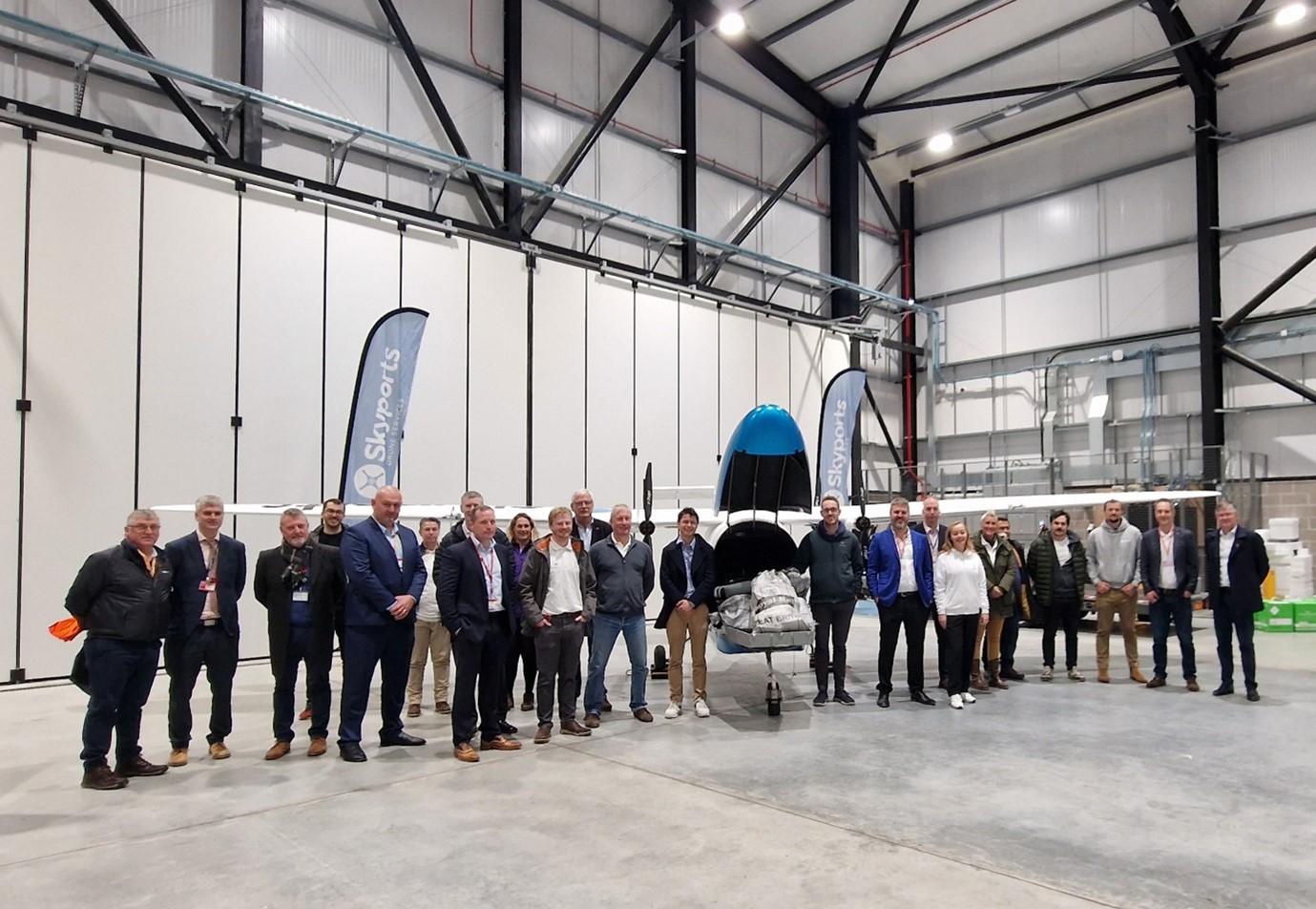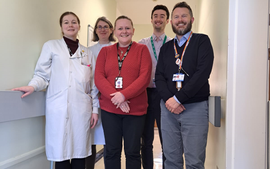- Published:
- 04 March 2024
- Author:
- Jo Walsh & Lisa Vipond
- Read time:
- 3 Mins
Transport is an important consideration for pathology services, especially so in remote areas like Cornwall. This article reports on the Open Skies Cornwall project, which is exploring the introduction of an innovative and environmentally friendly solution.
Our involvement in the Open Skies project was an opportunity to explore the use of unmanned aerial vehicles (UAVs) in transport for pathology and pharmacy services within Cornwall.
The focus of the project is to use new sensor technologies and aviation solutions to enhance and support existing transport methods to deliver and collect samples, blood products, point-of-care equipment and consumables, including drugs to remote areas and communities. These will benefit the quality of diagnosis and help achieve compliance with national targets and Getting It Right First Time initiatives.
As part of the conceptualisation processes, we developed use cases that sought to address the geographically vulnerable transport areas of our provision of service to patients and users throughout Cornwall. Collection and delivery of samples throughout Cornwall provides logistical challenges, including road infrastructure connectivity, volume of road users (especially in summer months), and, for island communities, reliable transport provision and susceptibility to inclement weather.
Cornwall’s geography results in some GP surgery sample collections being limited to 1 collection per day for rural locations. The Isles of Scilly rely on a passenger helicopter service, which is as prone to weather cancellations in summer months as it is in winter.
For rural Cornish locations, the intention is to augment existing road-based courier provision with a hub and spoke collection via drones. These drones will deliver a high volume of samples direct to the laboratory, incorporating our plastic-free transport solution Indexor, which will undergo Vehicle Certification Agency approval for drone transport.
There is also exploration of drone flight paths between Royal Cornwall Hospital and other peninsula sites to enable a direct transport route that would offer a flexible and timely delivery schedule for referral samples. This would also form part of established contingency plans to ensure continued provision of an urgent service for the affected sites.
Cognisant that drone delivery should not just be an exercise in proof of concept, we recognise that costs to maintain such a service could be prohibitive. Part of the consortium’s focus was to combine end users’ requirements into proposed schedules and use cases. The requirement, therefore, was to seek a drone that could accommodate not just pathology, but be used by other businesses and companies (such as Royal Mail, who have utilised drone transport previously) to mitigate single user cost tariffs.
Existing UAV manufacturers were focused on smaller, lightweight, single-package payload drones. Skyports, the UAV infrastructure consortium member, sought a UAV specifically for this project that could accommodate a larger payload than existing UAV solutions. The Pyka Pelican – an autonomous, electric, short take-off and landing drone – was deemed a suitable solution for these combined transport proposals within Cornwall. It is the first heavy-lift UAV of its type to be utilised in the UK.

The Open Skies Cornwall project includes progressive technology providers, i.e. of air traffic sensors and digital tracking, who are implementing unmanned system technology and sensors to support proposed routes. Local council authorities have also provided invaluable access to buildings for technology installations and ongoing maintenance of sensors and digital tracking solutions.

Extensive Civil Aviation Authority regulations apply to flight testing and activities within protected airspace; the lengthy application procedures for these have meant that UAVs are not a straight-out-of-the-box transport solution. However, the consortium members are committed to supporting this project through to fruition and incorporation of UAVs into routine transport schedules.
All Open Skies Cornwall partners seek a greener tomorrow by reducing carbon emissions. Developing the most sustainable drone transport solution is a key component of our proposed net-zero strategies.
Return to April 2024 Bulletin homepage
Read next
Making diagnostic laboratories more sustainable
04 March 2024
The College and sustainability
06 March 2024





